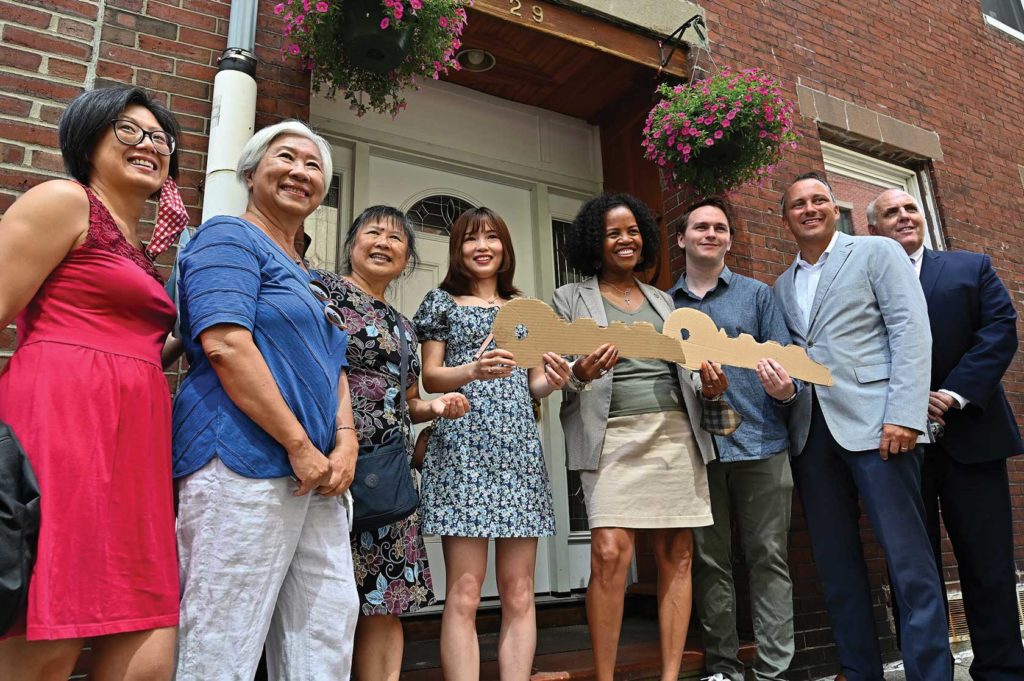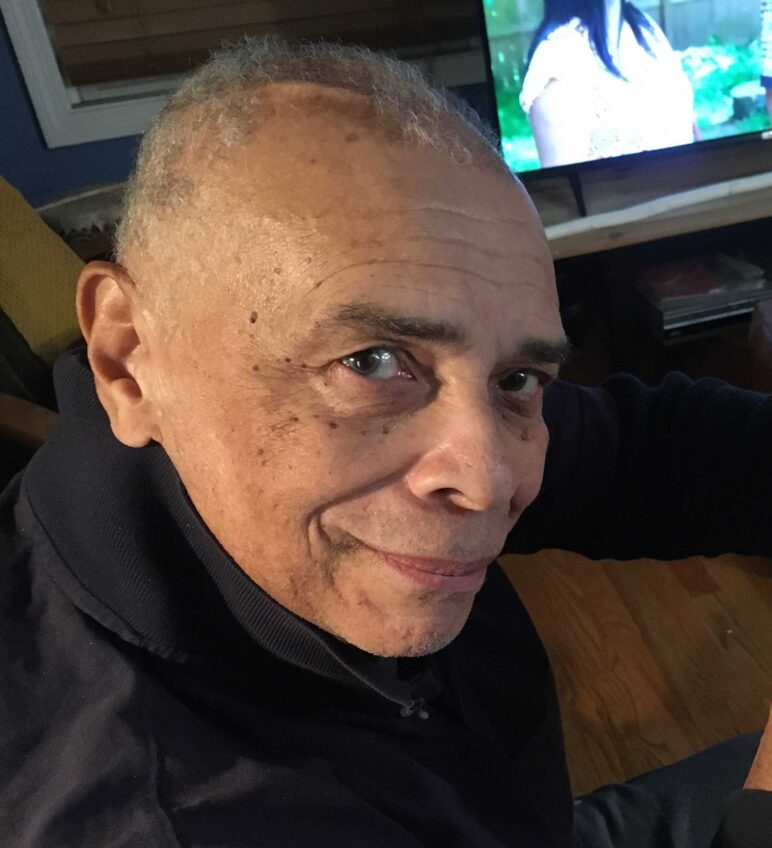
Meidan Lin didn’t expect to find a home for her family of four quite so soon. Waiting lists for affordable housing in Boston can take years, and winning lotteries for affordable homeownership can be like, well, winning the lottery.
So when she secured a unit in a refurbished row house on Chinatown’s Oak Street, it was a big deal.
“It’s very, very exciting,” she said, leading several Chinatown residents on a tour of her three-bedroom unit, which occupies the third and fourth floor of the Oak Street row house. “It’s very difficult for new immigrants to find housing.”
Lin’s new home was made possible by the Chinatown Land Trust, an organization that is removing real estate in the neighborhood from the speculative market and making it permanently affordable.
On Monday, Lin joined Chinatown activists and city and elected officials to celebrate the completion of the land trust’s first acquisition.
“Housing instability has been exacerbated by the COVID epidemic and the eviction crisis,” said Lydia Lowe, the executive director of the land trust. “But we’re hopeful we’re on the right track in the city of Boston.”
Acting Mayor Kim Janey compared the preservation of affordability in the rapidly gentrifying neighborhood to her own family’s struggle to keep its home in the then-changing South End.
“My family was not able to hold on to their brownstone back in the 1980s when the South End began to gentrify,” she said. “So this issue is especially important to me. It is very personal for me that we are able to come here on this day to make sure that families have affordable homeownership opportunities.”
The row houses in Chinatown have long been home to immigrants — Irish, Lebanese, and beginning in the late 1800s, Chinese. For decades, activists in the community have fought the Tufts New England Medical Center’s expansion into the residential neighborhood and worked to preserve the housing stock, which has housed immigrant families, many of whom have doubled up in small apartments.
In recent years, luxury high-rises have encircled the Chinese American community in the neighborhood, pushing real estate values up and placing more pressure on the low-income residents of the neighborhood. Increased attention by investors also has led to more apartments being converted to short-term rentals.
“Our row houses were emptied and ravaged by Airbnb and short-term rentals,” Lowe said.
When a real estate developer snapped up 29 Oak Street last year, members of the land trust reached out to District 1 City Councilor Lydia Edwards, who met with the developer and persuaded him to negotiate with the Chinatown residents.
The land trust purchased the building from the developer and hired a contractor to create three units in the four-story building.
In addition to preserving row houses, Chinatown activists have worked with partner organizations to construct new affordable developments on parcels of city and state-owned land in and around the neighborhood.
On Monday, the three new affordable units served as a tangible success in a neighborhood that has for decades fought for its survival.
“This is a very special day in our city,” Janey said. “It shows that when we work together, we can come up with creative solutions in addressing our housing crisis. We can have affordable home ownership in our neighborhoods to support working families and make sure that the residents of Boston can continue to call our city home.”







